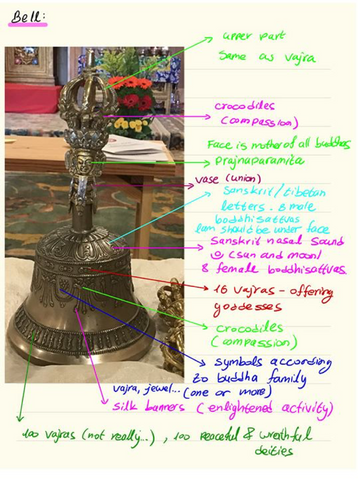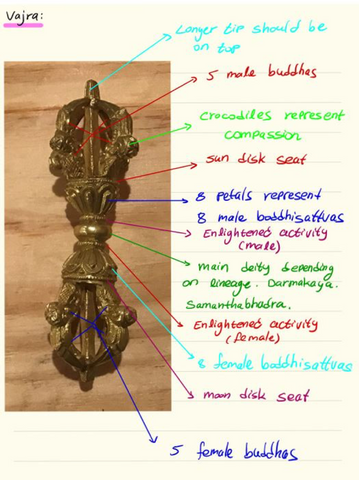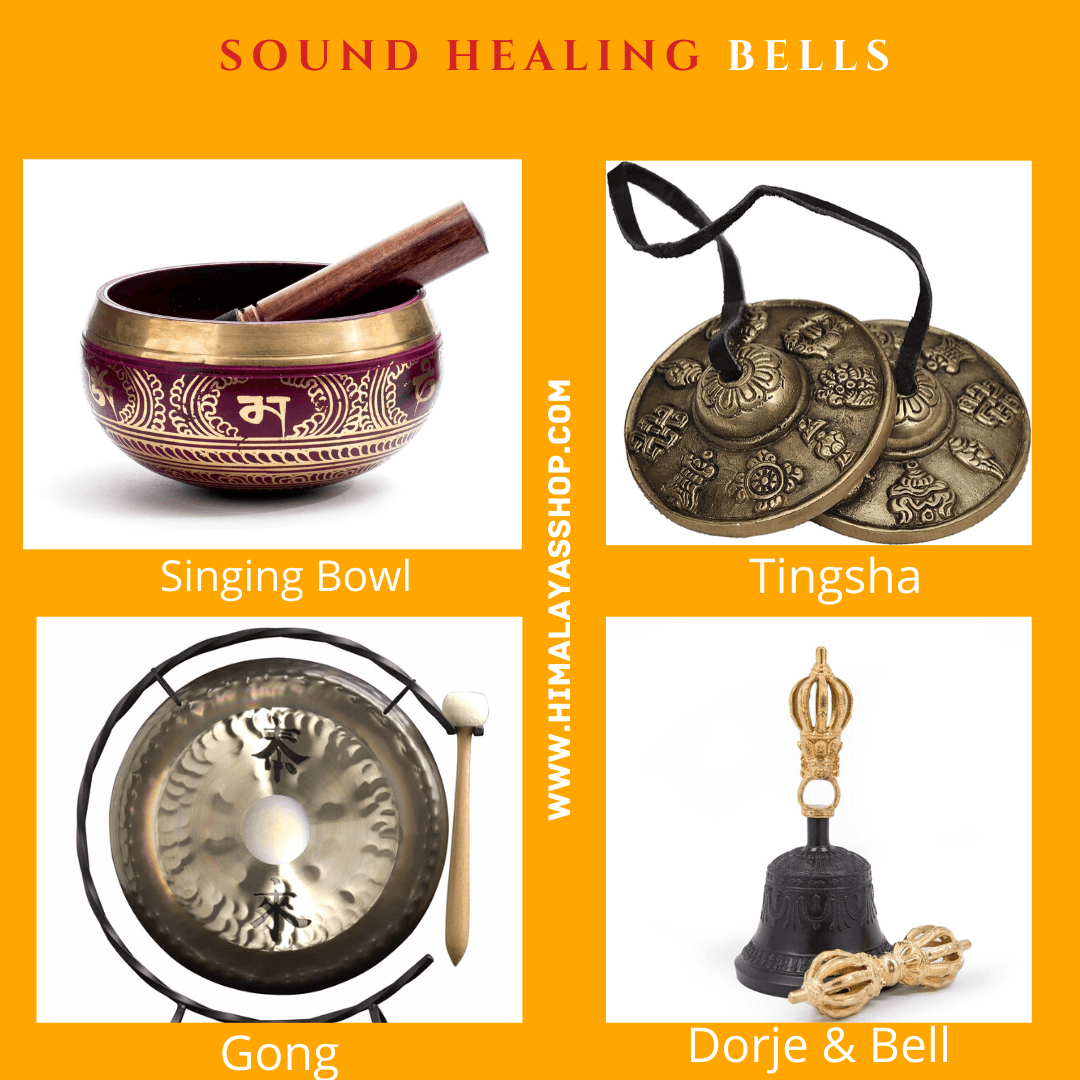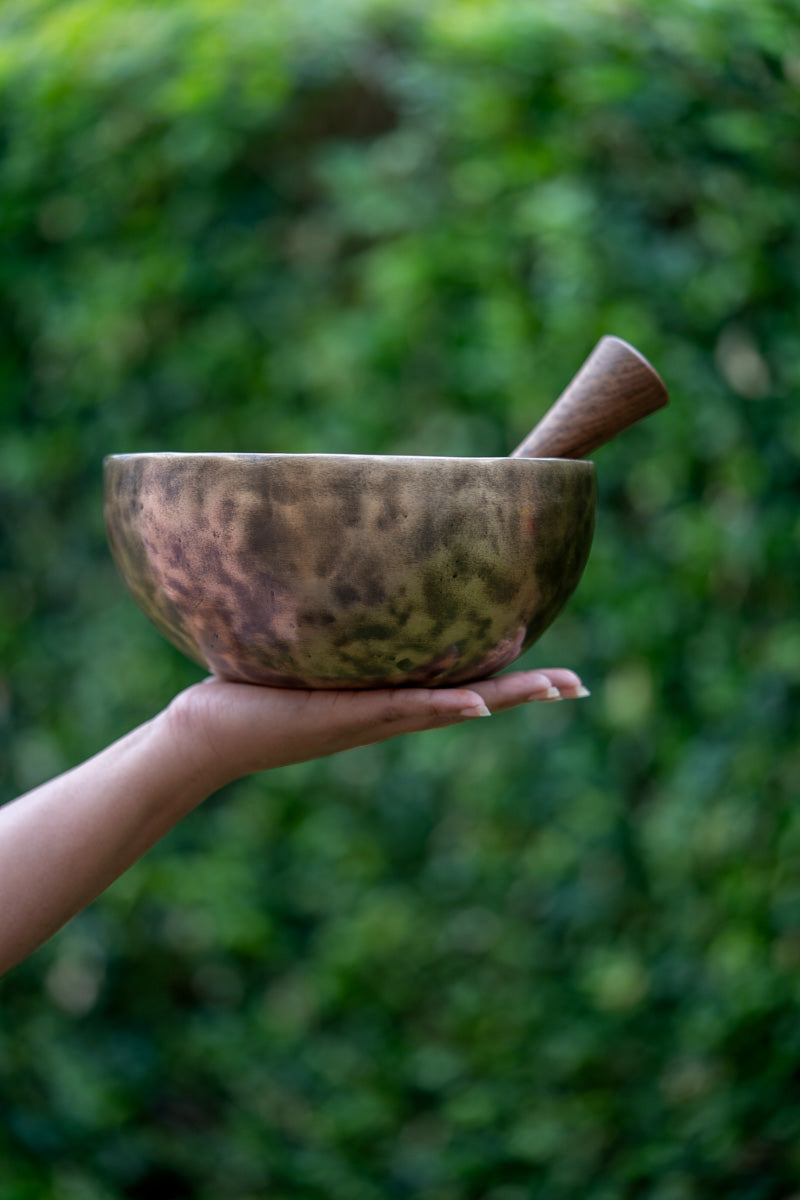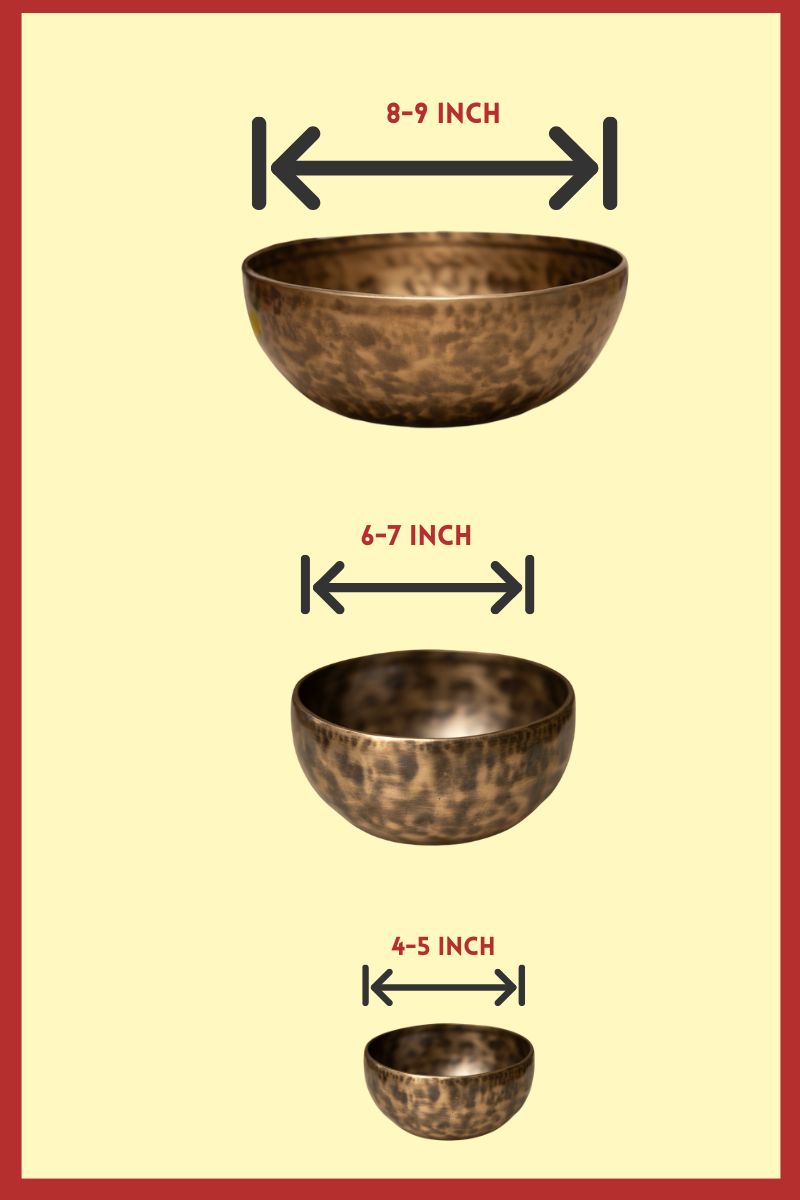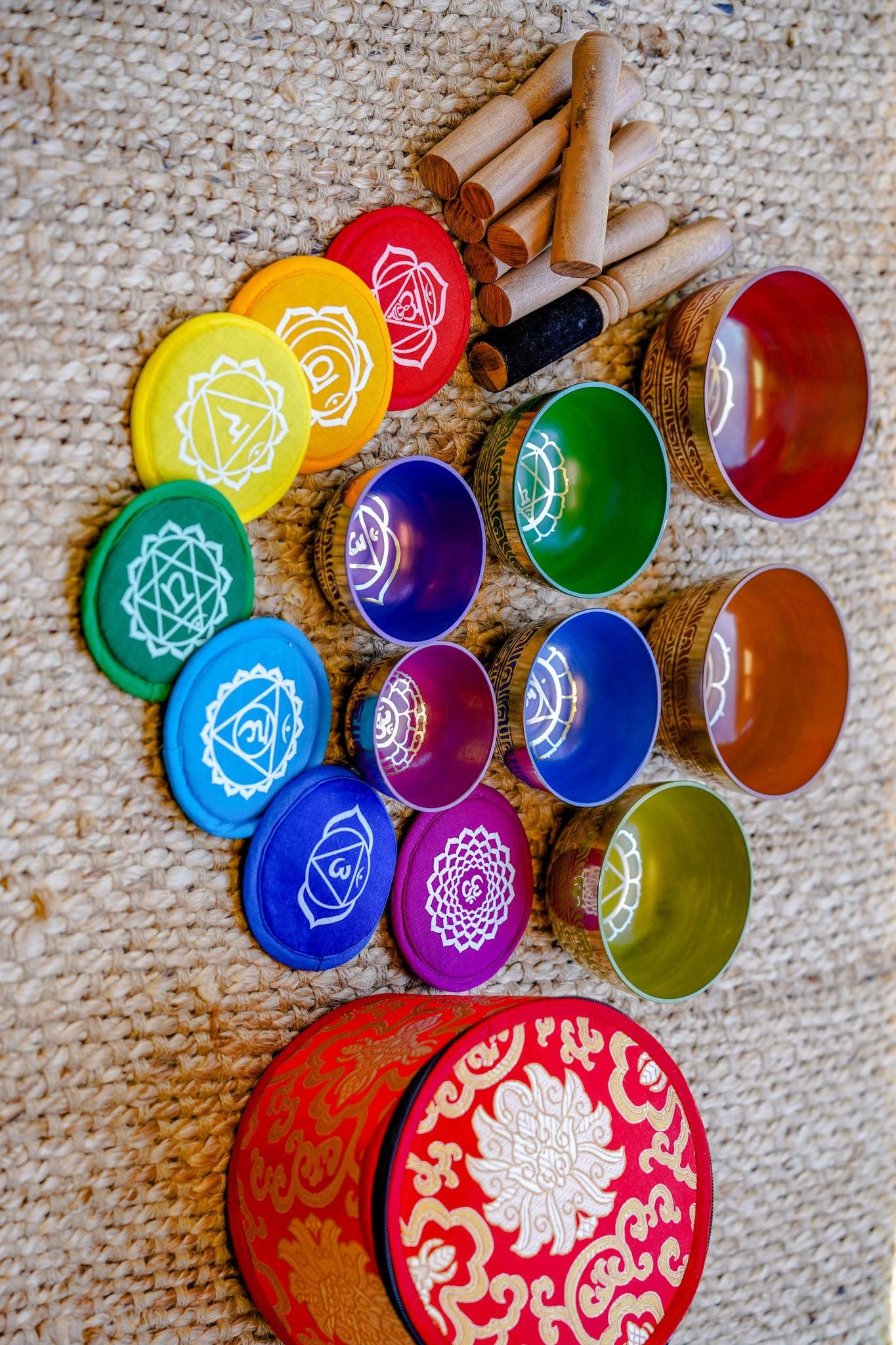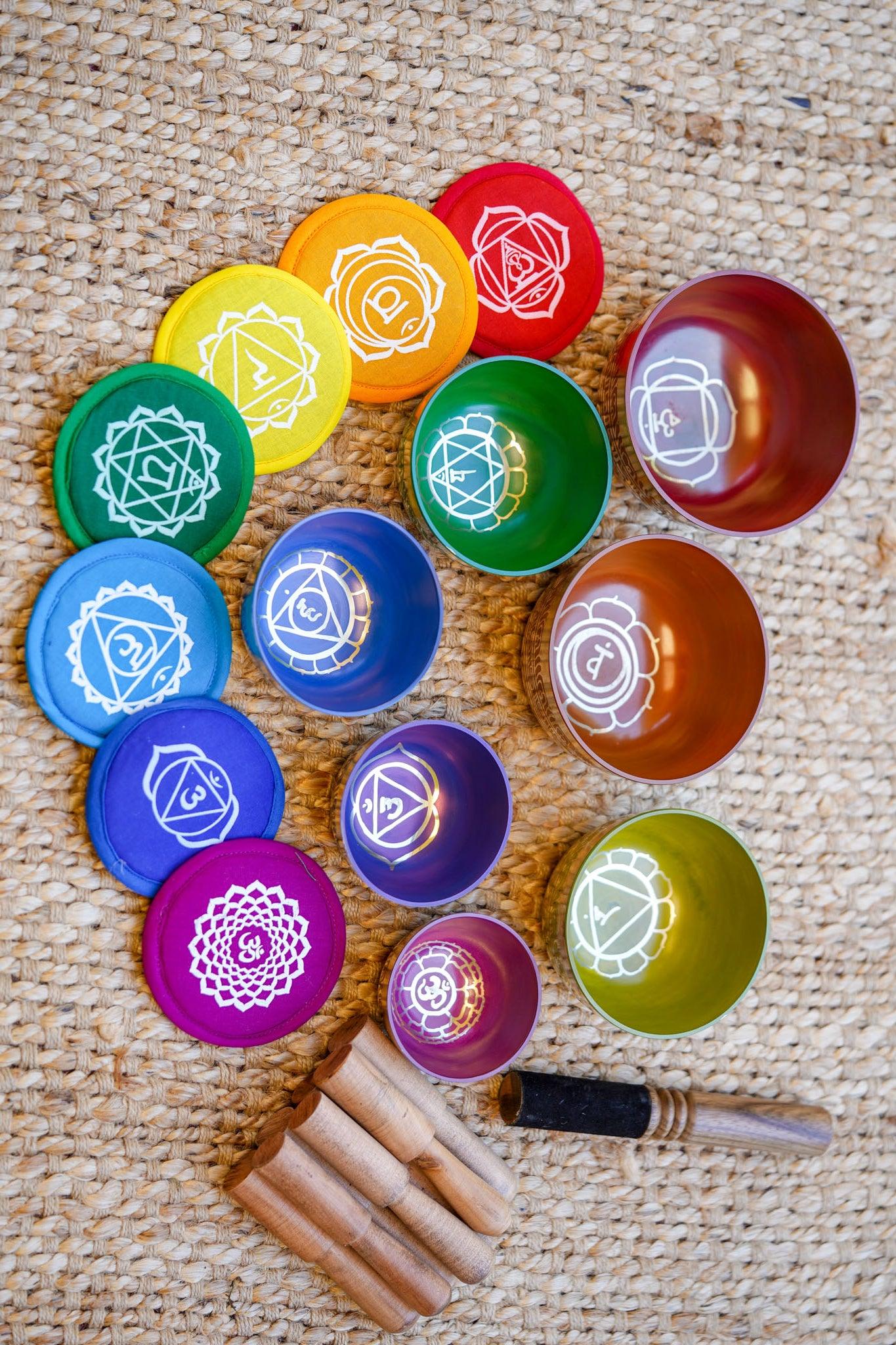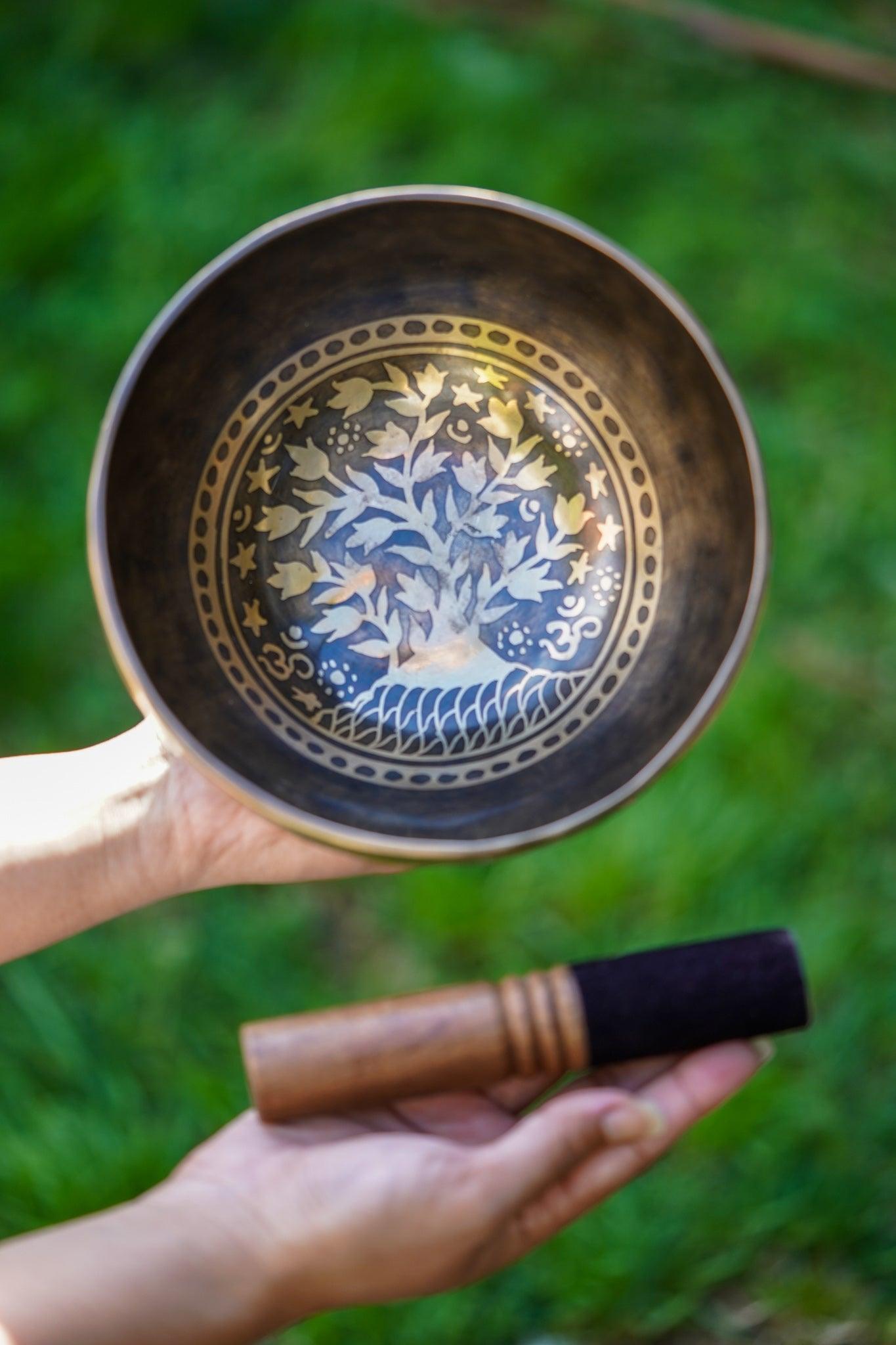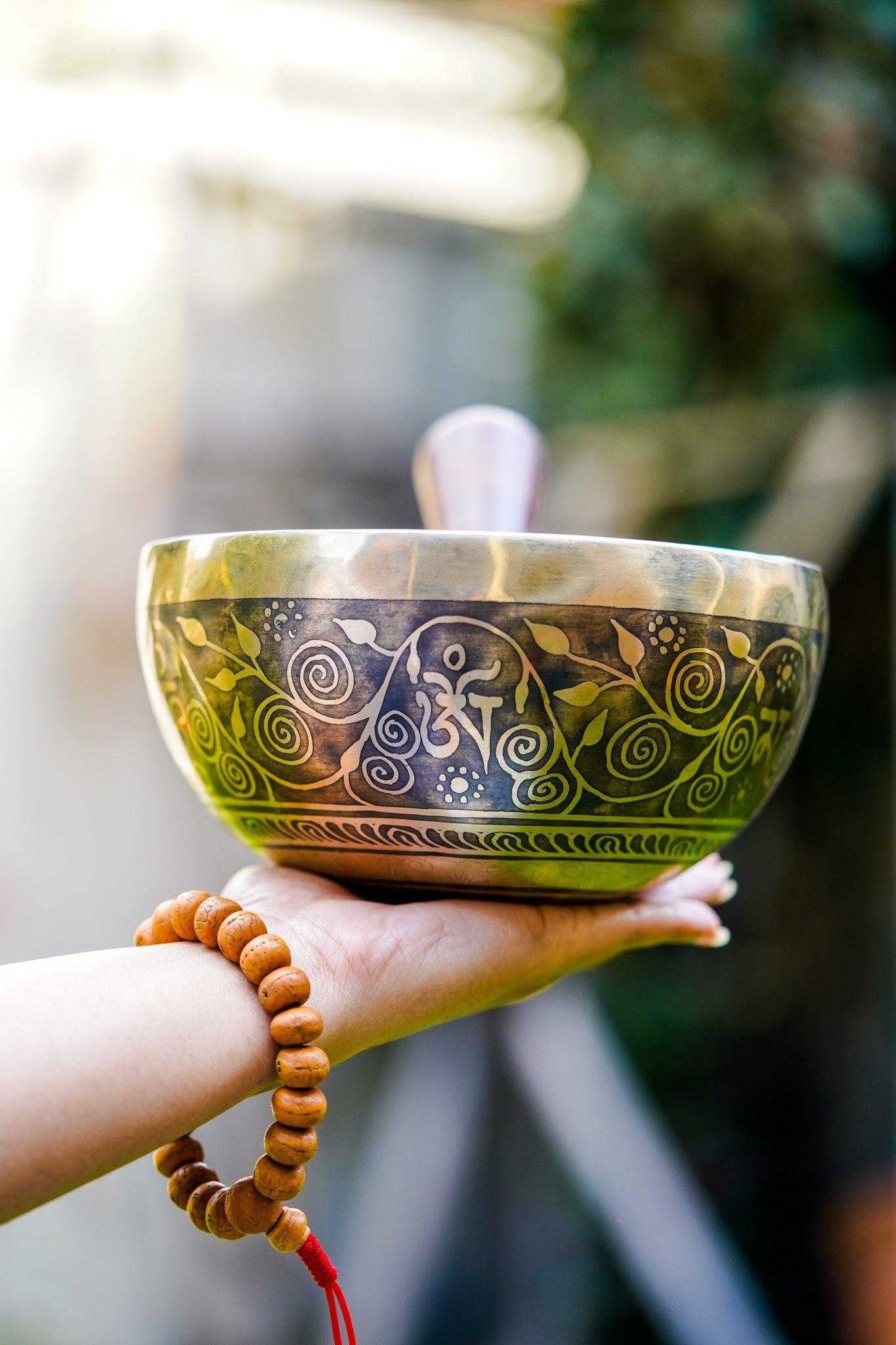Bells also known as “Ghanti” in Nepali have been used in Himalayas sub-continent for thousands of years. Either for religious purpose or spiritual or musical instruments, bells have been there from beginning. Though it’s called Tibetan bells, the origin of these bells and mystical musical instruments have originated from India and Nepal. There are few bells/ mystical musical instruments that is being used for healing today. These instruments are singing bowl, tingsha, Gong, Bell (GHANTI), Tuning Fork, Didgeridoo, Windchimes.
1.Singing Bowls
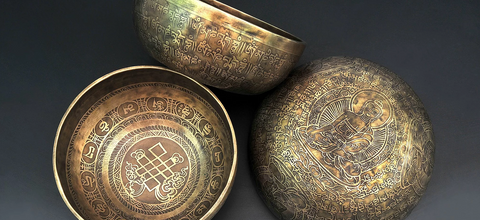
Singing Bowls is a nearly symmetric metal bowl that produces a musical sound either by rotating a wooden stick around the outside rim or softly hitting the wooden stick on the outer rim. Singing bowls are commonly as Tibetan Singing Bowl, Tibetan healing bowl, Tibetan Meditation bowl and Himalayas Singing bowl. Today, singing bowls’ mystical sounds can now be heard in many different places such as healing centres, yoga studios, classrooms, temples, and much more. But one thing remains – singing bowls are still as powerful of a spiritual, medicinal and musical tool as they were thousands of years ago. Click here to shop Best Singing Bowl from Himalayas Shop.
2.Tingsha

Tingsha are set of two small cymbals which are joined together by a leather strap, when struck against one another creates a bell like high pitched sound. These tingshas, traditionally were used for ritual and meditation in Himalayas range of Nepal and Tibet, usually by Buddhist monks. The size of Tingsha ranges from 2.5 inch to 5 inch. High quality tingsha is made from special bronze and both cymbals are identical and are of similar or same size. Today tingsha is used along with singing bowl for meditation and sound healing. Click here to shop Tingsha from Himalayas Shop.
3.Gong
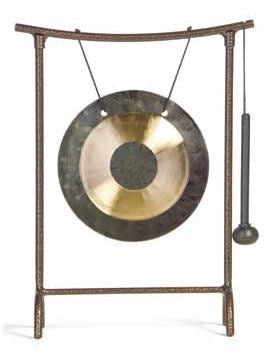
A gong is a flat- circular metal disc when hit by a mallet it produces melodious sound. The Gong has been originated from China and South East Asia. From Chinese Kung Fu movie to Hollywood movies, this gong has made long journey since its origin in sixth century. Gongs produce two distinct types of sound. A gong with a substantially flat surface vibrates in multiple modes, giving a "crash" rather than a tuned note. In Indonesian gamelan ensembles, some bossed gongs are deliberately made to generate in addition a beat note in the range from about 1 to 5 Hz. The use of the term "gong" for both these types of instrument is common. Today Gong are used in sound healing and sound bath, the sound gong brings immense relaxation and peace of mind.
4.Bell and Dorje or Ghanti- Vajra)
Bell and dorje is also known as Drilbu or ghanta. These bells are crafted in Nepal and India by skilled artisans using bronze alloy. The bell and dorje are important symbolic ritual items. The dorje, or vajra is always hold in the right hand, while we ring the bell with the left hand. At the outer level, these two implements represent the indivisibility of means (vajra) and the wisdom recognizing emptiness (bell). At the same time, we can understand that the dorje represents compassion, while the bell signifies Prajñāpāramitā, the perfection of wisdom.
Every Bell and Bajra are unique and consists of many symbols which might vary from one to another, each having individual meaning. Few common symbols and its meaning of Bell and Bajra is shown in below figure.
